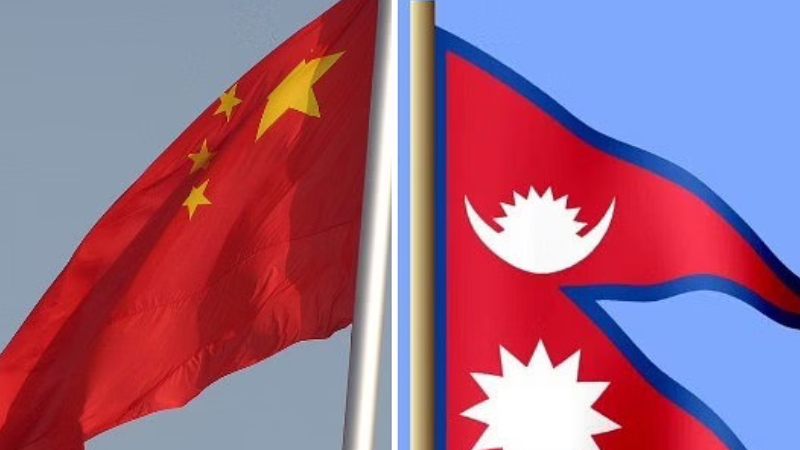China's policy of browbeating Nepal into obedience has failed miserably.
Digital Desk: China entered the political discussion in Kathmandu over whether Nepal should take the Millennium Challenge Corporation (MCC) fund, a USD 500 million development aid from the United States, and offered weighted remarks to imply that Nepal should refuse the proposal, but China's deal fell through.
Under President Xi Jinping's leadership, China adopts coercive wolf warrior diplomacy. China's policy of browbeating Nepal into obedience has failed miserably. However, with Nepal's Parliament ratifying the Millennium Challenge Corporation agreement, China's efforts to prevent Kathmandu from receiving USD 500 million in development aid from the US have backfired.
Nepal and the United States signed the Millennium Challenge Corporation (MCC) deal in 2017, which will help Nepal build infrastructure such as energy transmission lines and upgrade national roadways. The United States had given Nepal until February 28, 2022, to accept the project. On the other hand, protests allegedly orchestrated by China have put the project's confirmation in Nepal's Parliament on hold indefinitely.
Former Nepal Prime Minister K. P. Sharma Oli's party, the Communist Party of Nepal (Unified Marxist Leninist), fought tooth and nail to prevent the project's passage in Parliament. Still, all other political parties in Nepal banded together to defeat CPN (UML) opposition and ratified the project on February 27 in a late-night session of Parliament.
K. P. Sharma Oli has pushed brazenly pro-China policies throughout his time as Prime Minister, to the detriment of Nepalese interests.
"Beijing welcomes international help to Nepal, but it should be free of political conditions." We condemn coercive diplomacy and an ideology based on self-interest at the expense of other nations' sovereignty," stated Wang Wenbin, a spokeswoman for China's Foreign Ministry, in Beijing on February 18; paradoxically, in a prominent display of coercion by China itself.
Some Nepalese political parties objected to the MCC grant, claiming that it was part of the US's Indo-Pacific strategy, in which the US wants to ensure freedom of navigation under international rules of navigation while breaking China's hegemony in the South China Sea, Taiwan Straits, and other regional waterways.
MCC decided in 2013-14 that the energy and transportation sectors were the two key stumbling blocks to faster economic growth in Nepal.
In September 2017, Nepal and MCC inked a "Compact Program" in Washington.
The USD 500 million funding will be used to build around 300 kilometers of 400 kV transmission lines and three substations and maintain approximately 300 kilometers of roads in various alignments.
The United States has also stated that the MCC project had no military component. It predated the development of the Indo-Pacific strategy. It was begun at the request of the Nepal government and with the support of all Nepalese political parties. According to the US, China was also suspected of promoting a disinformation campaign against the US contribution of USD 500 to Nepal.
Also Read: Congress Puts Questions on Gujarat as a Model State in the Country, Cites NITI Aayog report

Leave A Comment